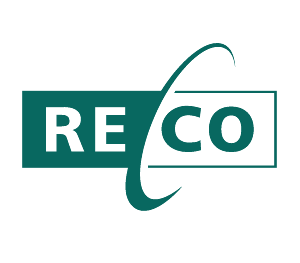?For most people, buying or selling a home is one of the most important and highest value purchases they will make, and potentially the most challenging. November is Financial Literacy Month, an opportunity for the Real Estate Council of Ontario (RECO) to put consumers on alert for 10 major home buying and selling mistakes that can lead to an unsatisfying experience or even serious complications.
RECO is responsible for protecting home buyers and sellers. Weve seen too many Ontarians encounter these pitfalls,? says RECOs Registrar Joseph Richer. Being mindful of these 10 considerations can help the buying and selling process go a lot smoother.?
Here are the most common buying and selling hazards, and how to avoid them:
1. Allowing emotions to overtake common sense
When you fall in love with a property it can be hard to walk away. Know your budget and dont overpay. Dont forgo a home inspection just to win a bidding war.
2. Hiring the first salesperson you meet
Ontario has over 60,000 brokers and salespersons, with a broad range of approaches to the buying and selling process. Meet with a few different representatives before settling on one, and make sure you feel comfortable with them and their approach to the process. Also be sure to get references and contact them to learn about their experience with the salesperson.
3. Not making your expectations clear with your real estate professional
Its important that you and your representative have a mutual understanding about what youre looking for, and what services the brokerage will be responsible for. Make sure you talk to your broker or salesperson about the services you expect them to provide, and get it in writing.
4. Failing to read and understand forms and contracts
It can be tempting to speed the process along by signing forms that you havent read. But taking the time to understand what youre signing can avoid a lot of problems later on. For example, you dont want to find out that youre on the hook for a six month listing agreement to sell your home if you only want your house on the market for three months. In addition, a holdover clause could mean that if you sell your property during a specified period without the assistance of the broker or salesperson, you would still owe them commission. Make sure all the blanks on the form are filled in before you sign it, and make sure you get a copy of whatever you sign.
5. Assuming everything is included
Dont assume that the furnace, dishwasher or other items are included with the property. The seller may?want to take the dishwasher with them to their new home, and the furnace might be under a rental?contract that youll be required to take over. Before making an offer, detail all items, known as chattels,?in writing. Your offer can also include a clause stating that the seller will pay out any outstanding leases?on the homes major systems.
6. Forgetting about whats within the walls
Granite countertops and new hardwood floors are appealing, but the insulation, wiring and plumbing?are just as important when youre evaluating a property. Ask your real estate representative to look into?the age of the homes systems and if there have been any upgrades. If extensive renovations have been?done, your real estate professional can determine if the appropriate permits were issued.
7. Forgetting about whats outside the walls
When you buy a house youre also buying a place in a community. Some places are lively, others are?quiet. Some places are filled with kids while others are not. Visit the neighbourhood at different times of?the day to see if it fits your lifestyle. Talk to the neighbours about the community and the locations of?various amenities like grocery stores and banks.
8. Not doing your research
If youre concerned about buying a home with a troubled past, a simple Internet search for the address?can go a long way. This is also something you can ask the neighbours about.
9. Making verbal agreements
Verbal agreements arent a problem, until theyre a problem. Putting everything in writing forces both?parties to be clear about their expectations and provides a record that can prevent disputes later on.
10. Underestimating closing costs
From land transfer taxes to title insurance to a home inspection, the costs of a real estate transaction?can add up quickly. Take the time to include estimates and other expenses in the full cost of buying or?selling a property.
While all of these tips are essential, the most important advice is to work with a registered real estate?professional.
Registered brokers and salespersons provide a great deal of knowledge and expertise about the buying and? selling process, along with specific knowledge about neighbourhoods and local issues,? says Richer. They can?also provide crucial help in avoiding these hazards.?







 Lesley-Anne Goodfellow
Lesley-Anne Goodfellow